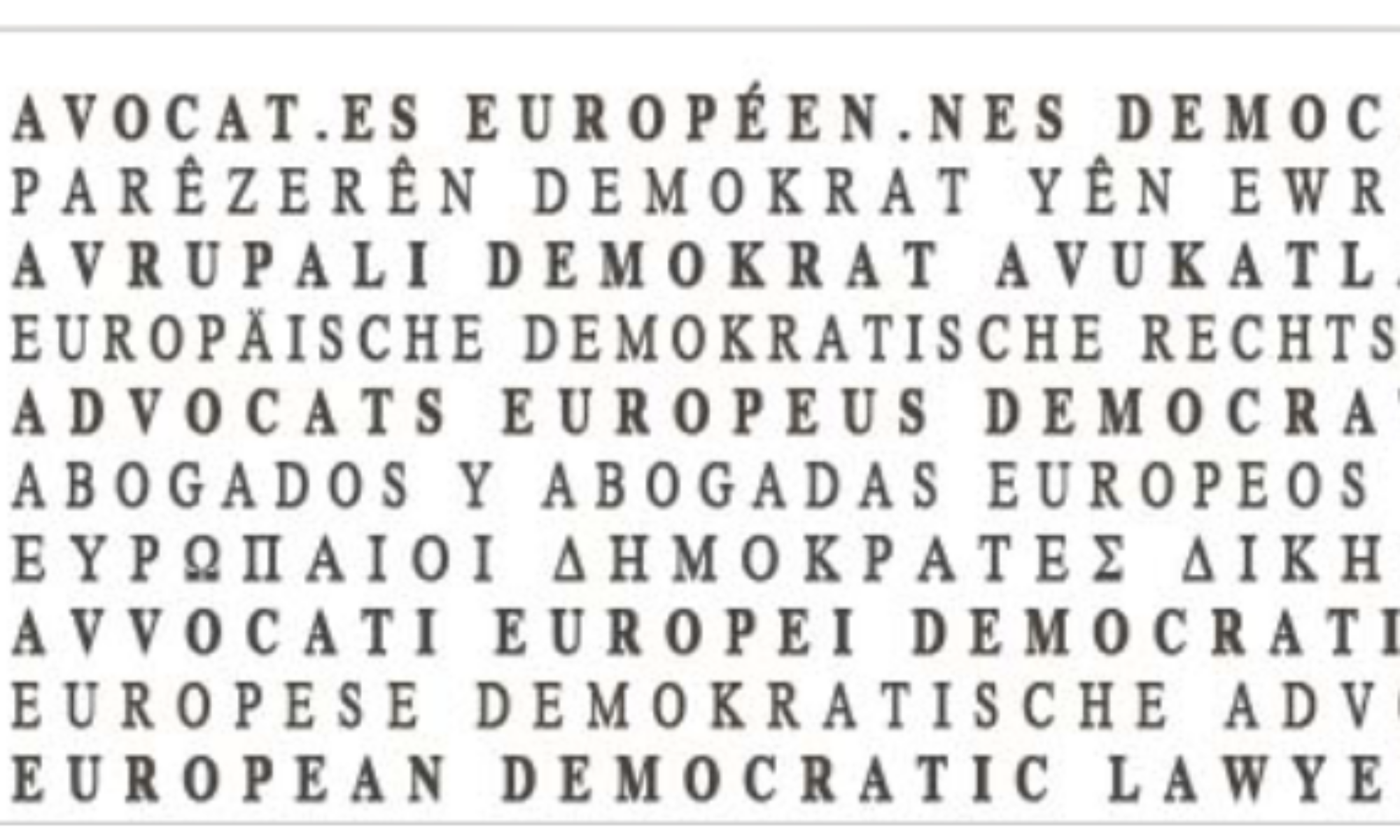The undersigned bar associations and international lawyers’ organisations call for the Islamic Republic of Iran and its agencies to protect, promote, and support the following basic rights:
1) the independence of the legal profession;
2) the principle of lawyer-client confidentiality;
3) the right to have access to a legal representative;
4) the right to prepare a defence.
This joint statement has been issued to help secure immediate, coordinated, multi-sectoral action on legal independence in Iran to guarantee lawyers practice their profession without fear of repression or persecution.
Since the 1979 Islamic Revolution and increasingly over the years, the legal profession in Iran has lost its independence and lawyers have been subjected to detentions, harassments, and persecutions.
- Policies and practices have been established by the regime that restrict and violate the independence of lawyers and judges, which leave the hands of the state open to convict those that “deviate” on charges such as “conspiracy against national security”, “propaganda activities against the Islamic Republic of Iran” and “cooperation with hostile states”.
- Note to Article 48 of Iran’s Code of Criminal Procedure among others[1] is particularly problematic.
- Note to Article 48 of the Code of Criminal Procedure states: “In cases of crimes against internal or external security, and in cases involving organized crime, where Article 302 of this code is applicable, during the investigation phase, the parties to the dispute are to select their attorneys from a list approved by the head of the judiciary.” In this note, lawyers are divided into two categories: lawyers who are trusted by the head of the judiciary and those who are not. The criteria on the basis of which trusted lawyers are appointed are set by the head of the judiciary. It is noteworthy that Article 48 of the Code of Criminal Procedure stipulates that: “When a suspect is arrested, he or she can request the presence of an attorney. The attorney, observing the secret nature of the investigation and the negotiations between the parties, should meet with the suspect. At the end of the meeting, which should not last more than one hour, the attorney may submit his or her written notes to be included in the case file.” However, the Revolutionary Courts, where “security-related” cases such as those involving human rights, political, and civil activists, are much less transparent than Public Courts. The judges at the Revolutionary Courts are known to abuse their legal powers. They deny access to legal representation during the investigation phase and prevent lawyers from accessing client files on the basis of confidentiality or that lawyers have insufficient “qualifications” to review certain files.
- Systematic pressure: Lawyers in Iran are systematically pressured and harassed in various ways. Lawyers who undertake cases despite such restrictions are often threatened, intimidated, and ultimately imprisoned. Bureaucratic requirements, and even reprisals against lawyers (usually depending on the nature of their case) often make it extremely difficult for legal professionals to supply their clients access to adequate defence, and thereby restricts the ability of defendants to receive and access a fair trial.
- Threats and arrests Over the years, restrictions and threats against lawyers in Iran have caused many in the profession to avoid defending the people that need it most, including minorities and other marginalized defendants as these are often the most politicized cases. Since the death of Mahsa Amini, a 22-year-old Kurdish girl who died in a hospital in Tehran due to injuries sustained by authorities after she was arrested by the “morality police” for wearing an “improper hijab”, and start of the nation-wide unrest, more than 430 human rights defenders[2] have been arrested, including at least 22 lawyers.
Calls of interest
In line with the basic principles on the role of lawyers, and in consideration of the above, we signatories of this statement call on the Islamic Republic of Iran and all its related agencies to take immediate steps aimed at protecting and supporting the independence of the legal profession and lawyers in Iran.
- Considering some members of the Judiciary including its head are appointed by the Supreme Leader, both the state and the Judiciary must dissociate themselves from independent lawyers. The state must ensure all persons are entitled to call upon the assistance of a lawyer of their choice to protect and establish their rights and to defend them in all stages of criminal proceedings. This includes the lawyers, who are now themselves, incarcerated.
- Laws and regulations must
be amended, and state practice must be changed to ensure the following:
- Lawyers are able to perform all their professional functions without intimidation, hinderance, harassment, or improper interference. The state must also ensure that lawyers do not suffer, or be threatened with, prosecution or administrative, economic or other sanctions for any action taken in accordance with recognized professional duties, standards and ethics.
- Lawyers are adequately safeguard by authorities where their security is threatened as a result of discharging their functions.
- Lawyers are not identified with their clients or their clients’ causes as a result of discharging their functions.
- The right of an attorney to appear before a court or a public authority shall not be restricted.
- Lawyers must have access to appropriate information, files and documents in their possession or control in sufficient time to enable lawyers to provide effective legal assistance to their clients. Such access should be provided at the earliest appropriate time.
In the 43 years of the ruling of the Islamic Republic of Iran, lawyers have been systematically pressured and harassed in various ways. One of the things that restricts lawyers in the field of defence is the establishment of rules and regulations that ignore the matter of defence and deprive lawyers of the freedom to defend their clients. When they do represent their clients despite such restrictions, they are often threatened, intimidated, and ultimately imprisoned. Threats against lawyers in Iran continue to grow and lawyers find themselves under increased surveillance. We, the undersigned, demand that the Islamic Republic and its agencies respect and support the following:
- Immediate release of all lawyers arrested for any action taken in accordance with recognized professional duties, standards and ethics.
- Immediate cease of prosecution of all lawyers prosecuted for any action taken in accordance with recognized professional duties, standards and ethics.
- Complete preservation of the independence of the legal profession.
- Right of individuals, lawyers included, under the rule of law.
- Right of the accused to be accorded a fair trial.
- Right of the lawyers to undertake the representation of clients (including other lawyers) or causes without fear of repression or persecution.
Signed by:
- International Bar Association’s Human Rights Institute
- German Federal Bar
- European Association of Lawyers for Democracy and Human Rights
- Association of Lawyers for Freedom (Özgürlük için Hukukçular Derneği)
- Defence Commission of the Barcelona Bar Association
- European Democratic Lawyers
- Association of Berlin Defence Lawyers (Vereinigung Berliner Strafverteidiger)
- Republican Lawyers Association (Republikanischer Anwältinnen- und Anwälteverein)
- Montpellier Bar association
- Human Rights Institution of Montpellier
- Progressive Lawyers’ Association (Çağdaş Hukukçular Derneği)
- Hanseatic Bar Hamburg, Germany (Hanseatische Rechtsanwaltskammer Hamburg)
[1] Article 191, Article 346, Note to Article 346, Article 385, Note to Article 297
[2] Between 16 September – 6 October, at least 300 human rights defenders were arrested (https://www.iranintl.com/202210065096); between 30 October – 3 November, at least 150 human rights defenders were arrested (https://www.radiofarda.com/a/32120083.html).



